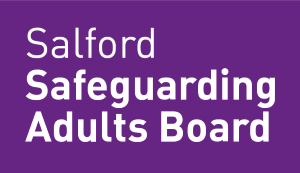Safeguarding Adult Reviews (SAR)
What is a SAR?
The statutory guidance for the Care Act 2014 states that Safeguarding Adults Boards must arrange a SAR when:
- an adult in its area dies as a result of abuse or neglect, whether known or suspected, and there is concern that partner agencies could have worked more effectively to protect the adult.
- An adult in its area has not died, but the SAB know or suspects that the adult has experienced serious abuse or neglect. In the context of SARs, something can be considered serious abuse or neglect where, for example the individual would have been likely to have died but for an intervention, or has suffered permanent harm or has reduced capacity or quality of life (whether because of physical or psychological effects) as a result of the abuse or neglect.
- SABs are free to arrange for a SAR in any other situations involving an adult in its area with needs for care and support. Please note that informal carers should be included for consideration.
Purpose of a SAR
Learning lessons SARs should seek to determine what the relevant agencies and individuals involved in the case might have done differently that could have prevented harm or death. This is so that lessons can be learned from the case and those lessons applied to future cases to prevent similar harm occurring again.
It is vital, if individuals and organisations are to be able to learn lessons from the past, that reviews are trusted and safe experiences that encourage honesty, transparency and sharing of information to obtain maximum benefit from them. If individuals and their organisations are fearful of SARs their response will be defensive and their participation guarded and partial.
Its purpose is not to hold any individual or organisation to account. Other processes exist for that, including criminal proceedings, disciplinary procedures, employment law and systems of service and professional regulation, such as CQC and the Nursing and Midwifery Council, the Health and Care Professions Council, and the General Medical Council
Salford Safeguarding Adults Board has a SAR panel which is a sub group of the SSAB, it meets monthly to consider all SAR referrals.
Who can make a referral?
Any agency can make a referral for a SAR if they identify a case where they believe that the criteria for a SAR are met. Examples of how a case might be identified are:
During a safeguarding investigation an Inquiry officer or chair identifies a case an agency may identify a case that hasn't had a safeguarding investigation e.g. police may identify that a case they have been investigating meets the criteria for a SAR.
The coroner, MPs and Elected Members of Salford City Council may have a case brought to their attention where they feel a SAR referral is appropriate referrals can be made by family members, carers and members of the public
Requests for a SAR must be made in writing using the referral form, which should be completed as fully as possible and returned to Salford Safeguarding Adults Board on the SAR email address - SAR.referrals@salford.gov.uk.
Where a professional or volunteer working for an agency has identified a possible SAR referral, the case should first be considered internally within the organisation at the appropriate level. Each agency/organisation needs to decide how any SAR referral will be verified internally before the referral is made to the Safeguarding Adults Board. This process should be clearly communicated to staff and noted in any single agency safeguarding adults policy.
Salford Safeguarding Adults Review (SAR) Policy and Procedure
Salford Safeguarding Adults Review Policy and Procedure
Information for Practitioners
We have produced a briefing note for practitioners who are invited to take part in a Safeguarding Adult Review which can be found in the Contacts and Resources section of our Policy and Procedure. The Practitioner's Reflective Session Information Sheet is located in the Safeguarding Adult Review folder.
Latest news
Details of all the latest news from Salford Safeguarding Adults Board.
